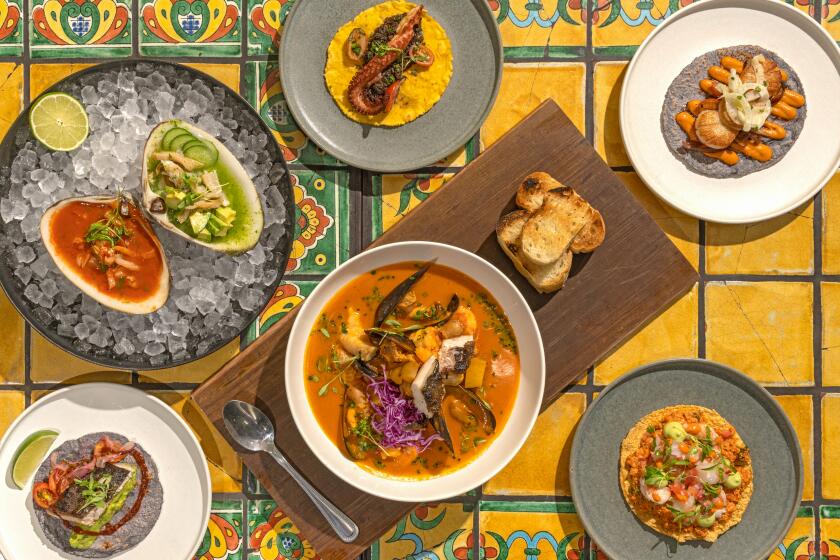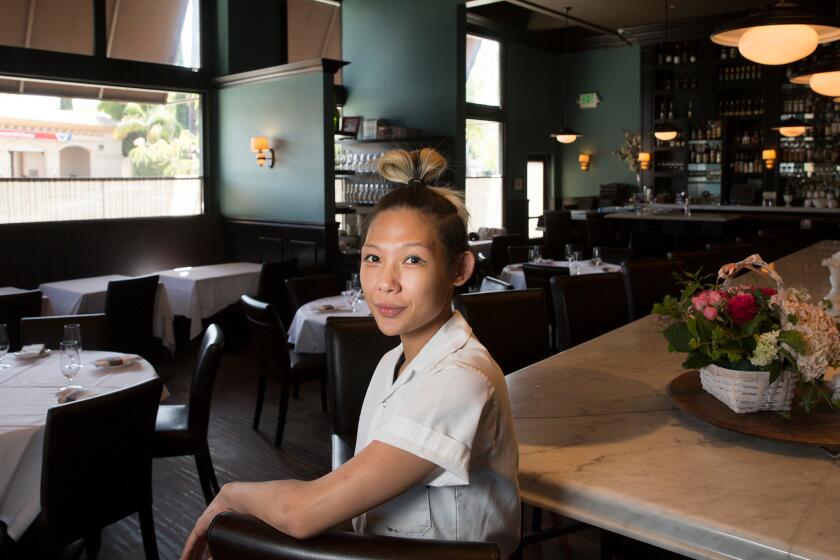- Share via
- Share via
Park’s BBQ wasn’t the first Korean barbecue restaurant to open in Los Angeles, not by a long shot. In fact, in 2004, a year after Park’s BBQ opened, Jonathan Gold wrote in L.A. Weekly that there were “a reputed 850 places to eat and drink” in Los Angeles’ Koreatown. And yet, over the last 20 years Park’s has played a pivotal role in making the flavors of Korean barbecue an essential element in the cuisine of Los Angeles — and in expanding the possibilities of what Korean food could be in this city.
“Park’s BBQ is the ultramodern palace of high-end meats that changed the game in Koreatown,” Jonathan wrote in a 2012 L.A. Weekly story, “60 Korean Dishes Every Angeleno Should Know.” Park’s is “the restaurant that managed to put the fragrance of hardwood charcoal into the meat and not into your hair, established superprime Wagyu beef as its standard grade and introduced the pork known as Tokyo X, a lean, dense pig from a special hybrid breed whose bellies have the springy presence of fresh pasta.”
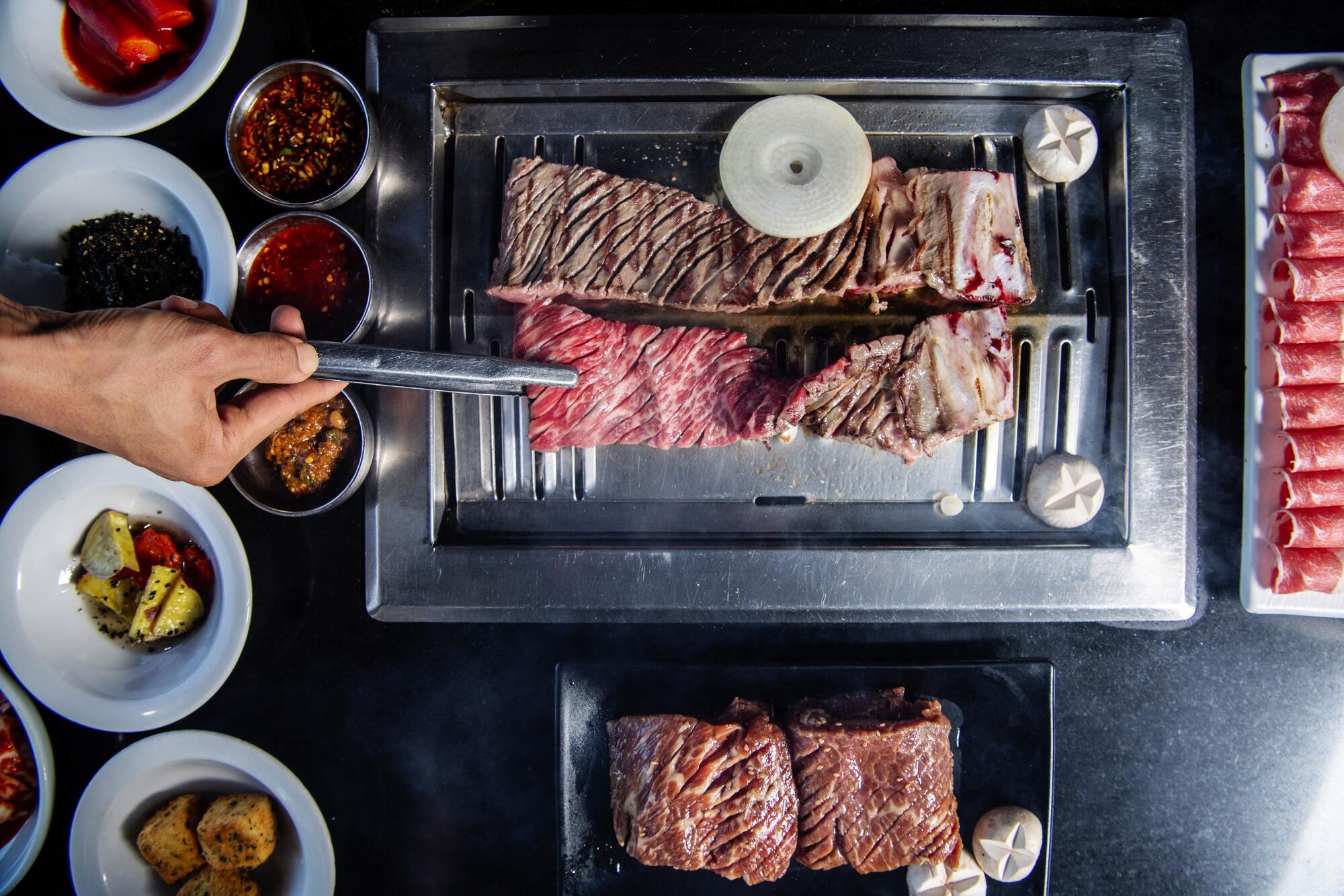
Why we chose the newly expanded mariscos stand in Historic South-Central’s Mercado la Paloma as our Restaurant of the Year.
These are just some of the reasons Park’s BBQ is this year’s recipient of the L.A. Times Gold Award, an honor conceived in 2017 by my husband, and this paper’s restaurant critic until his 2018 death, “with the idea,” he wrote at the time, “of honoring culinary excellence and expanding the notion of what Southern California cooking might be. The award celebrates intelligence and innovation, brilliance and sensitivity to aesthetics, culture and the environment.”
When Jenee Kim first opened Park’s BBQ on a busy stretch of Vermont Avenue, at the eastern end of Los Angeles’ sprawling Koreatown, she was a single mom looking for a way to support her two kids and start a career.
“I didn’t think I would open this big barbecue restaurant,” she said recently in one of the upstairs private dining rooms at Park’s. She had been looking for a small, modest place but instead stumbled upon the massive two-story former bar on Vermont that had been shut down for two years and had a stack of tickets for Alcoholic Beverage Control violations.
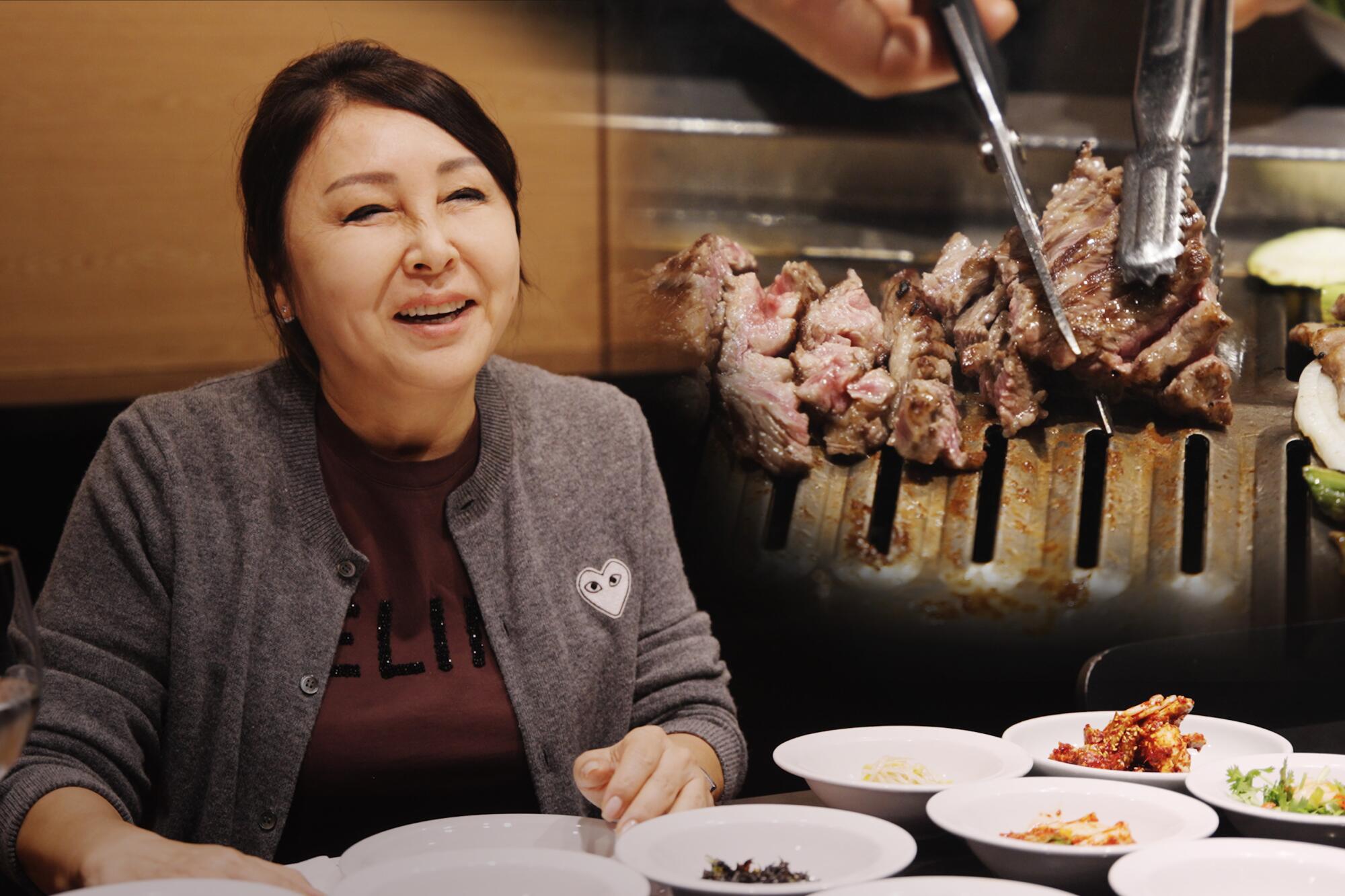
The first time Elizabeth Hong worked in a restaurant that wasn’t her mother’s — we’ll get to her mother’s restaurant in a second — was during culinary school, when she externed at Osteria Mozza, the Italian restaurant co-owned by Nancy Silverton, Mario Batali and Joe Bastianich in Hancock Park.
Her vision grew. A friend of hers knew the people behind Park’s BBQ back in Korea, which at the time was one of Seoul’s most famous restaurants. Somehow, she persuaded the Seoul owners to entrust a novice restaurateur with their name and send a representative to help her find cuts of meat — such as ggot sal or flower beef — that were popular in Korea but weren’t established yet in Los Angeles.
“I had to learn everything,” she said. “I had to bring all these seasonings from Korea, even dishes. I learned to make their short rib soup.”
Even with the Park’s name, the restaurant had to clear some early hurdles — it took several months after opening for Kim to get a liquor license and a 2004 mad cow disease outbreak slowed beef consumption for a time. But Park’s found its place as a restaurant serving high-quality meat in an environment where Koreans and non-Koreans alike felt at home.
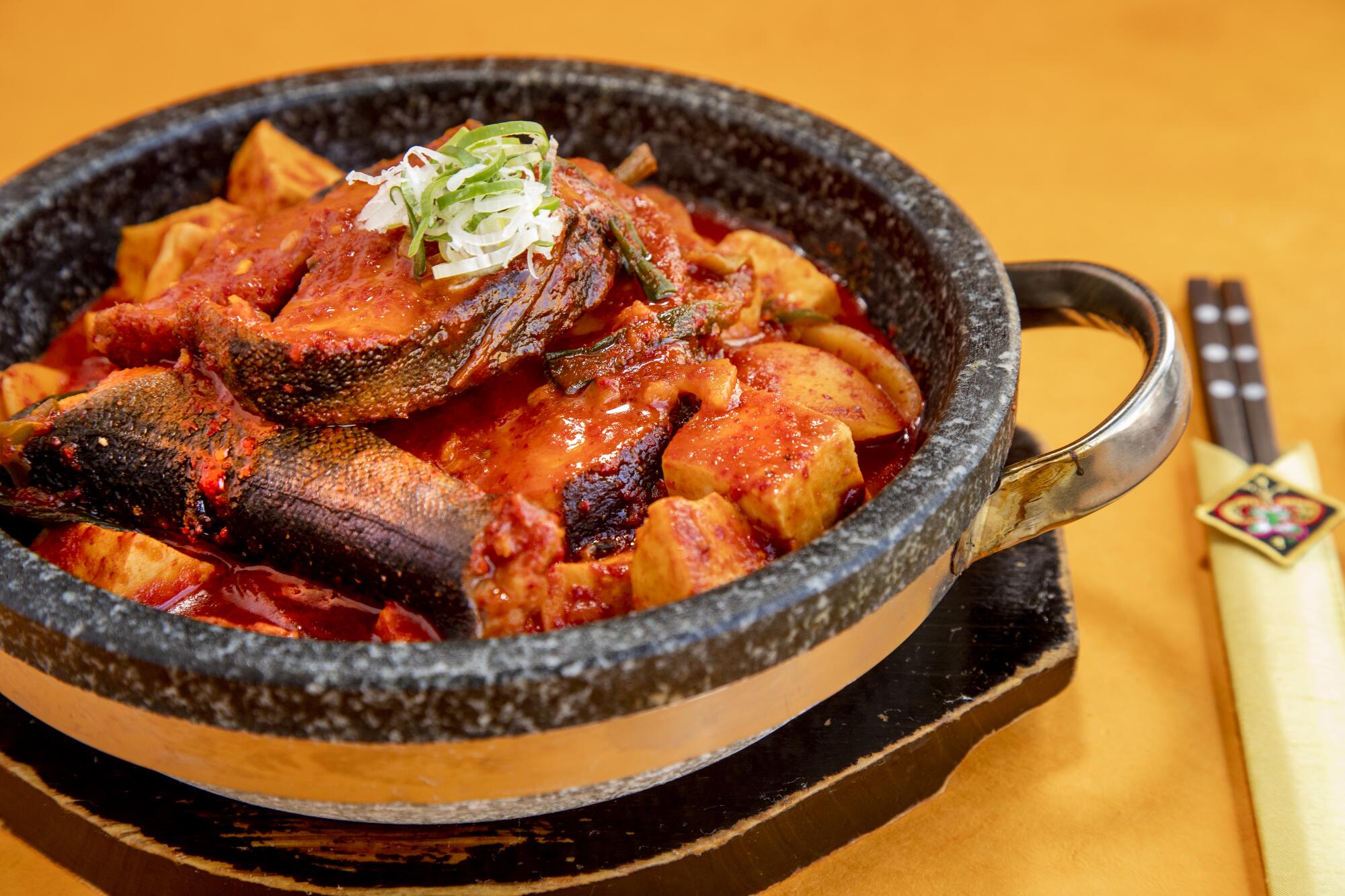
As Kim gained more experience as a chef and restaurateur, she started to make Park’s her own, adding new banchan, or side dishes, such as spice-dressed cilantro, an herb not traditionally served in Korea’s barbecue restaurants but well-known to L.A. eaters. She also added a larger variety of stews, soups and noodles along with traditional seafood and kimchi pancakes. Park’s soon became one of the key places that Angelenos take out-of-town friends when showing off their city.
Kim also became more ambitious. She opened the pork-centered restaurant Don Dae Gam and the tapas bar-style restaurant LaOn serving fresh takes on Joseon royal classics. Though short-lived, LaOn in 2012 — along with Roy Choi’s growing empire, David Chang’s Momofuku and Corey Lee’s East-West luxury creations at Benu in San Francisco — helped show a new generation of diners that Korean food is not static but a thriving, evolving cuisine.
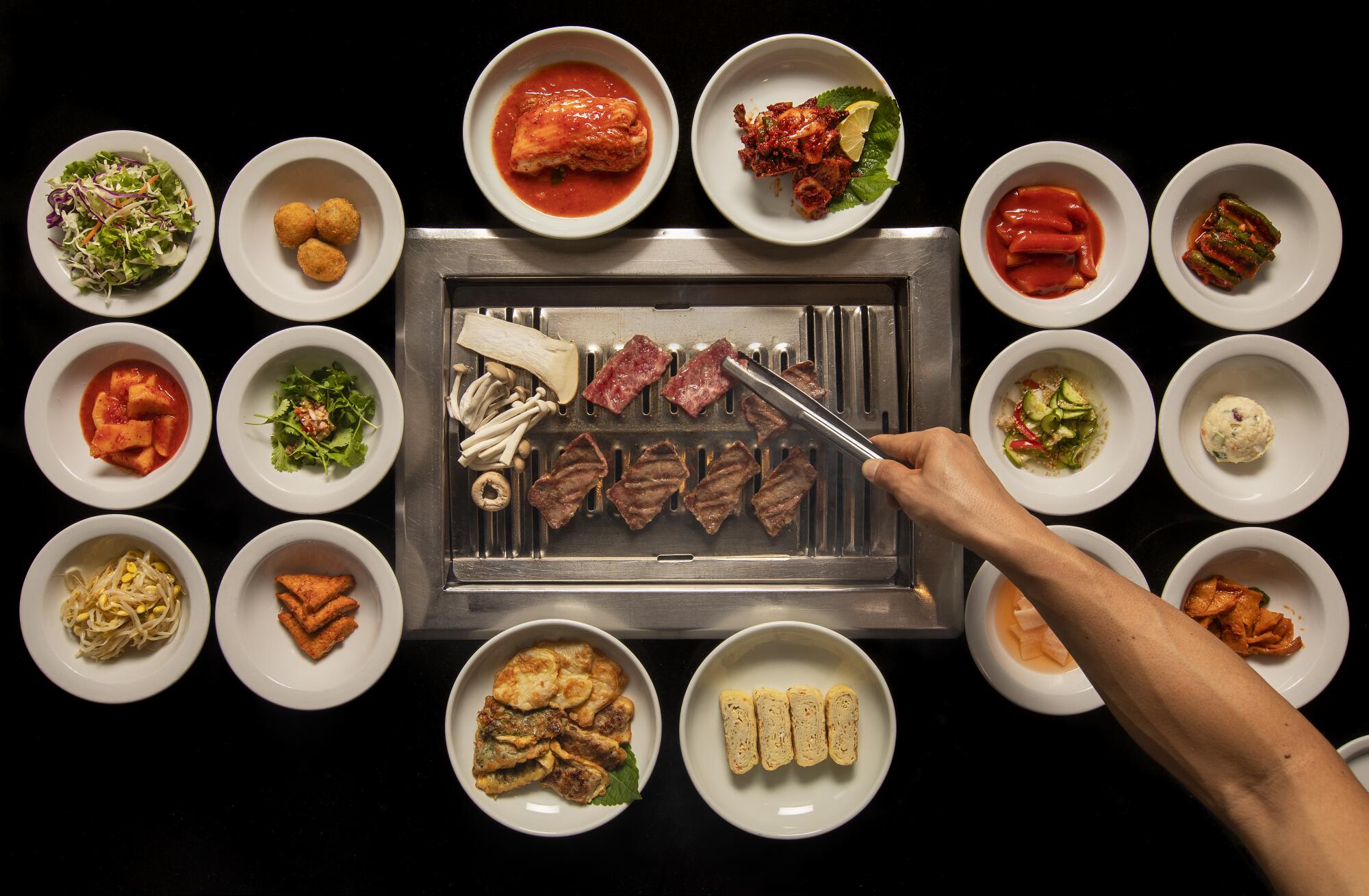
Last month, Times restaurant critic Bill Addison called chef Kiyong “Ki” Kim, of the Koreatown tasting-menu spot Kinn, “one of the freshest culinary voices in Los Angeles.” And last year, he hailed the innovation of Katianna and John Hong’s egalitarian Yangban Society.
I believe Park’s BBQ and LaOn’s brief existence helped prepare L.A. diners for Kinn’s and Yangban’s thrilling food.
These days, Kim, whose daughter Elizabeth Hong is culinary director of Nancy Silverton’s Mozza restaurants, constantly cooks up new dishes with her general manager, Ryan Park. She’s as active as ever.
A few months before he died in 2018, for a special section The Times published on Koreatown timed to the Winter Olympics in Pyeongchang, Jonathan wrote, “Park’s may no longer be the only top-end Korean barbecue place in town ... but the beyond-prime short ribs, beef tongue and rare-breed pork belly at Park’s are of the highest possible standard, the banchan are inventive and fresh, and the cold noodles called naengmyeon, the traditional finish to a barbecue meal, are tart and springy. Even things like stone-pot octopus, braised black cod and a simple kimchi jjigae have depths of flavor you may not expect. It is probably beyond argument that Jenee Kim’s modernist restaurant is still the best place in Koreatown to eat Korean barbecue.”
That opinion still holds with our current critic. “Literally dozens of barbecue houses line the streets of Koreatown,” Addison writes in our most recent 101 Best Restaurants in L.A. guide. “By all means, visit Soot Bull Jeep for the smokiest charcoal-fueled experience; Sun Ha Jang for the duck variations; and one of the latest top-dollar entrants for dry-aged beef. But for overall quality and hospitality, Jenee Kim’s operation is still the place to be.”
A celebration dinner with a presentation of the L.A. Times Gold Award will take place at Park’s BBQ on Sept. 12. The following night, on Sept. 13, L.A. Times Restaurant of the Year winner Holbox will receive its award during a dinner at Gilberto Cetina Jr.’s downtown restaurant. Tickets for both dinners are now available at lafoodbowl.com.
Park’s BBQ, 955 S. Vermont Ave., Unit G, Los Angeles, (213) 380-1717, parksbbq.com
More to Read
Eat your way across L.A.
Get our weekly Tasting Notes newsletter for reviews, news and more.
You may occasionally receive promotional content from the Los Angeles Times.

